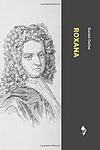Daniel Defoe
Daniel Defoe was an English writer, journalist, and spy, most famous for his novel 'Robinson Crusoe'. Born around 1660, Defoe was a prolific author who wrote on a diverse range of topics. He is considered one of the earliest proponents of the English novel and helped popularize the genre in Britain. His works are praised for their narrative style, imagination, and exploration of society and morality.
Books
This list of books are ONLY the books that have been ranked on the lists that are aggregated on this site. This is not a comprehensive list of all books by this author.
-
1. Robinson Crusoe
The book is a classic adventure novel about a man who spends 28 years on a remote tropical island near Trinidad, encountering cannibals, captives, and mutineers before being rescued. The story is noted for its realistic portrayal of the protagonist's physical and psychological development and for its detailed depiction of his attempts to create a life for himself in the wilderness. The novel has been interpreted as an allegory for the development of civilization, as well as a critique of European colonialism.
-
2. Moll Flanders
"Moll Flanders" is a novel about the life of a woman in the 17th century who is born in Newgate Prison to a mother who is a convict. Moll is raised by gypsies until she is old enough to take care of herself. She becomes a servant, marries multiple times, becomes a thief, and eventually ends up in Newgate Prison herself. Despite her tumultuous life, she maintains her spirit and cunning, using both to navigate the harsh realities of her world. The book is a commentary on the social and economic realities of the time, particularly for women.
-
3. Roxana: The Fortunate Mistress
This novel tells the story of a beautiful and intelligent woman who, after being abandoned by her financially irresponsible husband, navigates the treacherous waters of 18th-century English society to secure her and her children's future. Facing moral and societal challenges, she assumes the identity of "Roxana" and uses her wit, beauty, and charm to ascend the social ladder, becoming the mistress of several wealthy men. Throughout her journey, she grapples with the consequences of her choices, the pursuit of wealth and status, and the desire for independence in a male-dominated world. The narrative explores themes of femininity, morality, and survival, offering a complex portrait of a woman striving to control her own destiny in a time when women's options were severely limited.
-
4. A tour thro' the whole island of Great Britain
This book offers a comprehensive travel guide and social commentary on Great Britain during the early 18th century. The author provides a detailed account of the geography, culture, and economy of the cities and towns he visits, including London, Edinburgh, and York. The book also includes observations on the living conditions, industries, and social customs of the people, offering a unique historical perspective on life in Britain during this period.
-
5. A Journal Of The Plague Year
This book provides a detailed account of one man's experiences during the year 1665, when the bubonic plague ravaged London. Written in the form of a journal, it blends fiction with historical fact, offering a vivid portrayal of the city's atmosphere as the disease took hold. The narrative captures the fear, confusion, and chaos of the time, as well as the various responses of the populace, from those who fled to those who stayed to face the epidemic. The author delves into the social and economic impacts of the plague, including the efforts of authorities to contain it, the plight of the poor, and the moral and religious interpretations of the calamity, providing a compelling and immersive glimpse into one of the darkest periods of London's history.




